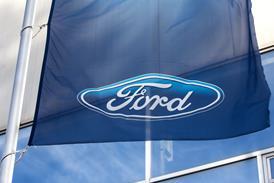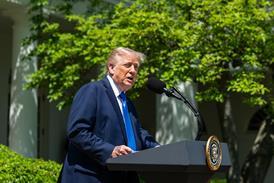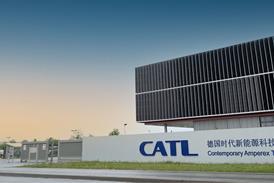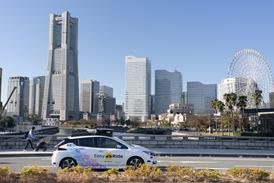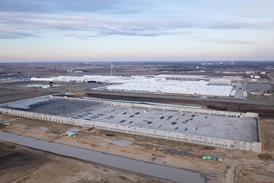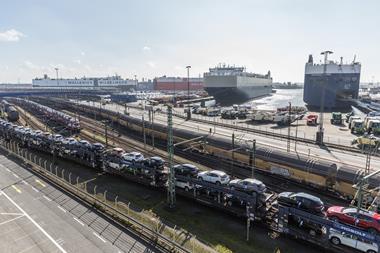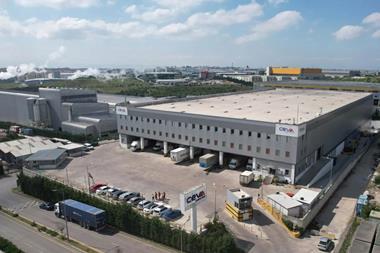
The vehicles affected are equipped with airbags manufactured and supplied by safety systems provider Takata. It is the biggest recall the supplier has been involved with since 1995 when 8m vehicles had to be returned because of its defective seatbelts.
According to Toyota the components could have been assembled with improperly manufactured propellant wafers that risk causing the inflator to rupture and the front passenger airbag to deploy abnormally in the event of a crash. So far only five malfunctions have been recorded by Toyota and there have been no injuries.
However, the impact of the recall demonstrates the importance for automotive suppliers and carmakers of maintaining quality checks on delivered parts.
In the Defect Information Report delivered to the National Highway Traffic Safety Administration (NHTSA) in the US, Takata highlighted that the wafers, manufactured at the company’s facility in Moses Lake, Washington, between 2000 and 2002, “may have been produced with an inadequate compaction force”, with additional wafers exposed to “uncontrolled moisture conditions”.
“Delivery of these parts from a single supplier has, up until this announcement, saved the affected companies in terms of total cost of delivered parts,” said Julian Buckley, principal analyst at IHS Supplier Business. “That saving will now be turned into a considerable loss as each OEM calculates the cost of rectifying the problem.”
Toyota is recalling around 1.73m vehicles including 510,000 in the US and 490,000 in Europe. The recall involves Corolla, Corolla Matrix, Sequoia, Tundra and Lexus models made between 2000 and 2003. A spokesperson for Toyota Motor Sales in the US said that it was still developing the process for implementing the recall and did not have an estimate on how long the process would take but it did not expect anything “too out of the ordinary” in terms of logistics.
Honda is recalling around 1.14m vehicles, with 56,000 accounted for in Europe.
“It is impossible to say how long it will take for the recall to be fully implemented,” said a spokesperson for the Honda Motor Europe. “Honda will contact customers with affected vehicles and ask them to make an appointment at their local Honda dealer.”
The replacement airbags will also be supplied by Takata and Honda said it is in the process of building up stocks to ensure that there are sufficient units available for when the repair work begins. The company does not source all of its air bags from Takata.
“About 40% of driver side air bags and about 70% of front passenger side air bags are supplied by Takata,” said the spokesperson. “We work with several other airbag suppliers too.”
It is the second time Honda has been faced with a recall because of Takata supplied airbags. In 2010 it was forced to recall just under 438,000 vehicles to inspect for a faulty module.
Nissan, meanwhile, is recalling about 480,000 vehicles and Mazda is recalling 45,500 vehicles.
Problem of single sourcing
Most major OEMs are now considering, or actively putting in place, global supply contracts with a single company as a way of reducing overall vehicle production costs. According to Buckley, these deals, in addition to simplifying the procurement process, can help to deliver improved economies of scale for a given part or component.
“However, at the point at which the tier supplier agrees to manufacture a given part, it further agrees to manufacture that part to a specific level of quality,” he pointed out. “If that level is not met it is largely the reputation of the OEM that will suffer, particularly as most consumers will never have heard of the company delivering the individual part.”
Takata admittedly has plants in every major market around the world but reputation is a two way street and the consumer can hardly be to blame for never having heard of Takata when the company’s own awareness of the customer seems equally deficient. The company’s vice president Alby Berman said that the company had no information on its customer’s demands or on the timing for replacement parts. The company told Automotive Logistics News that it could not provide any information on the production schedule and what impact the recall might have on existing contracts with its customers.
This does not mean that all global supply contracts are inherently risky but it once again points to the fact that visibility in the supply chain remains a concern even amongst major OEMs.
“In the vast majority of cases such contracts reduce manufacturing costs, which in turn reduce retail prices and improve the potential for market success,” continued Buckley. “[However] if Takata had only been delivering to Japanese factories it would still have meant a substantial number of vehicles being affected by the recall. As OEMs continue to increase the percentage of out-sourced parts, cases such as this serve to highlight how imperative it is that suppliers have the production methods in place to deliver consistent, repeatable quality and that OEMs maintain open lines of communication with their suppliers.”
Emergency measures
The carmakers affected may now have to resort to expedited shipments to meet the demand for repair work.
“This is a complex situation that is still unravelling and obviously has some significant implications for a number of manufacturers,” said Andrew Austin, CEO of emergency logistics provider Priority Freight.
He said the company was well-versed in the implications of the rapid movement of large volumes of components required to replace either faulty parts or those suspected of being so.
“We are standing by for involvement in this particular issue, and are in dialogue with a number of involved parties currently, as there is the expectation that expedited shipments will be required at some point in various geographies,” said Austin. “As always with these types of events, it is the car manufacturers themselves that will determine the level of response that will be required, and we will provide the optimum solutions in line with their requests.”










